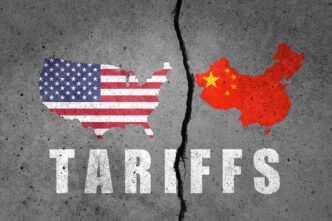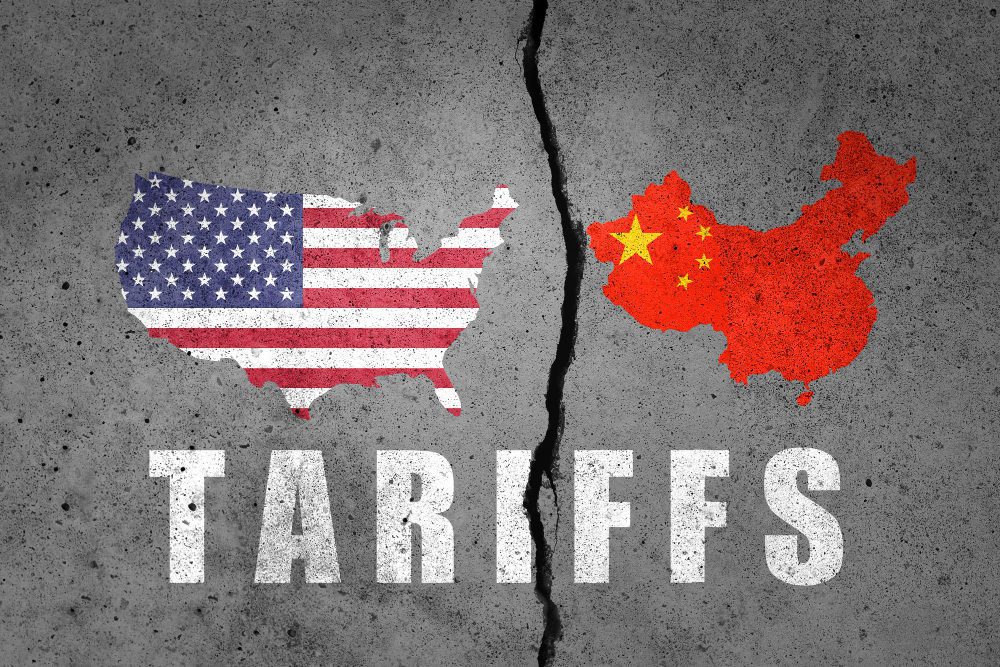Executive Summary
- U.S. and Chinese delegations are holding high-level economic talks in Madrid to address persistent trade tensions and the looming September 17 deadline for TikTok’s Chinese parent company, ByteDance, to divest its U.S. operations.
- Experts suggest a further extension of the TikTok divestment deadline is the most probable outcome of the current negotiations, as a major breakthrough is considered unlikely.
- Substantive progress in U.S.-China relations is unlikely without a direct meeting between President Trump and Chinese President Xi Jinping, with current discussions primarily aimed at setting the stage for such a high-level summit.
The Story So Far
- The current U.S.-China economic talks are part of an ongoing dialogue initiated to de-escalate trade tensions that escalated under President Donald Trump’s administration, which imposed tariffs on Chinese imports prompting retaliatory measures from Beijing. These high-level discussions, the fourth in as many months, aim to build on previous agreements like a 90-day trade truce and are now significantly driven by the looming September 17 deadline for TikTok’s parent company to divest its U.S. operations.
Why This Matters
- The ongoing high-level economic talks between the U.S. and China are crucial for de-escalating persistent trade tensions, potentially leading to an extension of the critical TikTok divestment deadline and influencing the future of the popular app’s U.S. operations. However, substantive progress on core disputes like tariffs and tech export controls remains unlikely without a direct meeting between President Trump and Chinese President Xi Jinping, suggesting these discussions are primarily laying groundwork for future, higher-stakes negotiations.
Who Thinks What?
- U.S. and Chinese delegations are engaged in high-level economic talks aimed at addressing persistent trade tensions, tariffs, and the looming deadline for TikTok’s divestment, with expectations tempered for a major breakthrough beyond a possible deadline extension.
- William Reinsch, a senior trade adviser, suggests that substantive progress between the U.S. and China is unlikely without a direct meeting between President Trump and Chinese President Xi Jinping, viewing current discussions as an opportunity to measure each other’s positions and red lines, noting China’s reported reluctance for a summit until the outcome is clear and U.S. export controls are eased.
U.S. and Chinese delegations are continuing high-level economic talks in Madrid for a second day, aiming to address persistent trade tensions and the looming deadline for Chinese divestment from the short-video application TikTok. The negotiations, led by U.S. Treasury Secretary Scott Bessent and Chinese Vice Premier He Lifeng, commenced on Sunday at Spain’s Palacio de Santa Cruz, concluding the first day without an immediate breakthrough after approximately six hours of discussions centered on TikTok, tariffs, and broader economic issues.
Ongoing Economic Dialogue
This round of talks marks the fourth such engagement in as many months between the two economic powerhouses. These discussions follow a pattern of meetings held in various European cities since May, initiated to de-escalate trade disputes that saw President Donald Trump impose increased tariffs on Chinese imports, prompting retaliatory measures from Beijing, including duties on U.S. goods and a halt on rare-earth exports to the U.S.
The delegations previously met in Stockholm in July, where they successfully agreed to a 90-day extension of a trade truce. That agreement significantly reduced triple-digit retaliatory tariffs on both sides and facilitated the resumption of rare-earth shipments from China to the United States.
TikTok Divestment Deadline Looms
A central point of contention remains the September 17 deadline for ByteDance, TikTok’s Chinese parent company, to divest its U.S. operations or face a shutdown in the United States. Experts had tempered expectations for a major breakthrough in Madrid, suggesting a further extension of this deadline as the most probable outcome.
Expert Perspectives on U.S.-China Relations
William Reinsch, a senior trade adviser at the Center for Strategic and International Studies, offered a cautious outlook on the Madrid talks. He stated that substantive progress between the U.S. and China is unlikely unless a direct meeting occurs between President Trump and Chinese President Xi Jinping, suggesting these current discussions are primarily aimed at setting the stage for such a high-level summit.
According to Reinsch, while President Trump has repeatedly expressed interest in meeting with President Xi, China is reportedly hesitant to agree until the outcome is clear and is pushing for further easing of U.S. export controls on critical technologies like chips. Reinsch characterized the current meeting as an opportunity for both sides to “measure each other’s positions and to learn more about each side’s red lines.”
Logistical Developments and Future Engagements
China’s embassy in Madrid indicated the possibility of a concluding news conference on Monday afternoon, suggesting the talks might wrap up swiftly. Previous discussions on more complex issues, such as rare-earths shipments in London, have occasionally extended into a third day.
Following the Madrid talks, Secretary Bessent is scheduled to travel to London on Tuesday for a meeting with British Finance Minister Rachel Reeves. This precedes President Trump’s state visit with King Charles, which is slated to begin on Wednesday.








